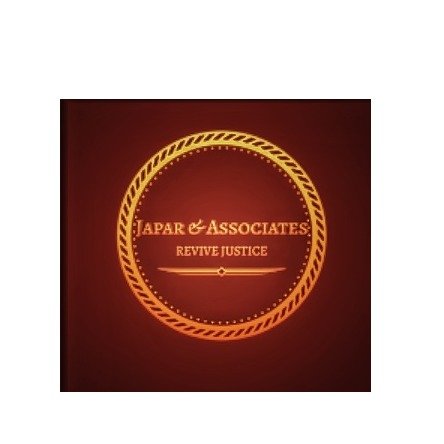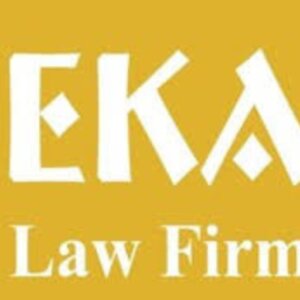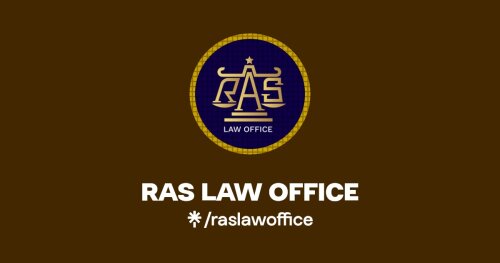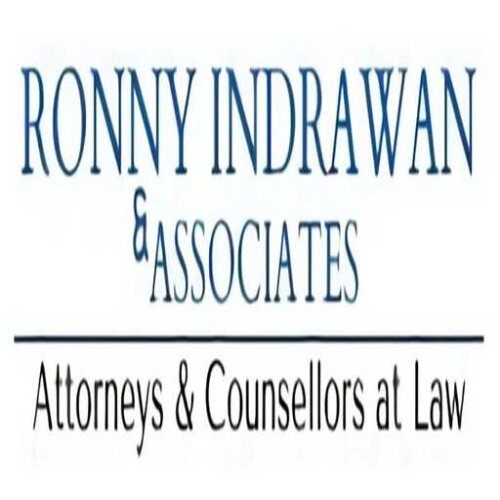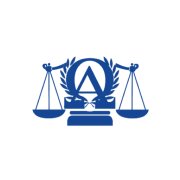
Best Climate Change Law Lawyers in Surabaya
Share your needs with us, get contacted by law firms.
Free. Takes 2 min.
List of the best lawyers in Surabaya, Indonesia

About Climate Change Law in Surabaya, Indonesia
Climate change law in Surabaya, Indonesia refers to legal frameworks, regulations, and policies focused on mitigating and adapting to the impacts of climate change. These laws may cover areas such as greenhouse gas emissions, pollution control, land and water management, environmental protection, and the adoption of renewable energy sources. Surabaya, as a rapidly growing urban center, is particularly affected by climate-related issues like flooding, air pollution, and rising sea levels. The local government aligns with national initiatives while developing its own strategies to address specific environmental challenges in the region.
Why You May Need a Lawyer
Legal advice in climate change law may become necessary in several situations. Businesses might need legal clarity when complying with environmental regulations or obtaining permits for industrial activities. Property owners could require assistance if their land is affected by new development restrictions or climate adaptation projects. Community groups or individuals may want to challenge projects that have a significant environmental impact or to advocate for more robust local climate policies. Legal counsel is also helpful when dealing with disputes related to water use, waste management, or emissions standards. A lawyer can help you understand your rights, responsibilities, and the potential consequences of legal non-compliance.
Local Laws Overview
Surabaya’s approach to climate change law is guided by Indonesia’s national legislation, including the Law on Environmental Protection and Management (Law No. 32 of 2009) and the National Action Plan for Greenhouse Gas Emissions Reduction. Locally, the Surabaya City Government enforces by-laws addressing waste management, green open space, clean water provision, and air pollution control. Permits for construction, industry, and transportation may require environmental impact assessments. There are also incentives for adopting sustainable technology and penalties for environmental violations. The Surabaya Green City initiative and various city regulations focus on urban resilience, coastal protection, and disaster risk reduction to address climate-related risks specific to the area.
Frequently Asked Questions
What is climate change law?
Climate change law covers legal rules and policies aimed at reducing greenhouse gas emissions, adapting to climate impacts, and promoting environmental sustainability. In Surabaya, it includes both national laws and local regulations affecting businesses, individuals, and communities.
How does Surabaya enforce climate and environmental regulations?
Surabaya’s environmental agency (DLH Surabaya) monitors compliance with local bylaws and national laws. They can conduct inspections, impose penalties, and issue warnings for violations related to pollution, waste, or land use.
Do businesses need special permits to operate under climate change law?
Yes, businesses that have an environmental impact often require environmental permits, such as Environmental Impact Analysis (AMDAL) or Environmental Management Efforts (UKL-UPL), before beginning operations in Surabaya.
Can the public participate in climate change law decisions?
Public participation is encouraged, especially during the environmental impact assessment process. Residents and NGOs can provide input or objections regarding proposed developments or city projects.
What should I do if my property is affected by new climate adaptation projects?
If your property is affected, consult with a lawyer to understand your rights regarding compensation, relocation, or negotiation with local authorities under expropriation and environmental legislation.
Are there city-level incentives for green businesses or projects?
Yes, Surabaya offers incentives such as reduced permit fees, recognition, or technical support for businesses that adopt clean technology, renewable energy, recycling programs, or contribute to green space.
What legal responsibilities do industries have to prevent pollution?
Industries are required to comply with emission standards, waste management laws, and regular reporting. Violations can result in sanctions, permit revocations, or legal action from authorities.
How are climate-related disputes resolved?
Disputes may be handled through negotiations, administrative tribunals, or civil courts. In some cases, mediation facilitated by local government or environmental agencies is also an option.
What should NGOs know about advocating for climate policy in Surabaya?
NGOs should be aware of public participation rights, information disclosure laws, and the process for submitting policy proposals or objections during public consultations or city council meetings.
How can individuals contribute to climate change mitigation under the law?
Individuals can follow waste segregation and recycling regulations, participate in tree planting and green city programs, and report violations to the environmental agency. Some city initiatives reward community involvement.
Additional Resources
For legal advice or information on climate change law in Surabaya, you can contact the following organizations and government bodies:
- Surabaya Environmental Agency (Dinas Lingkungan Hidup Kota Surabaya)
- Ministry of Environment and Forestry of the Republic of Indonesia
- Surabaya City Hall (for local regulations and policy updates)
- Indonesian Center for Environmental Law (ICEL)
- Local legal aid organizations and university law clinics focusing on environmental law
Next Steps
If you need legal assistance in climate change law in Surabaya, start by identifying your specific legal issue or question. Gather any related documents, such as permits, notices, or correspondence from government agencies. Contact a qualified lawyer experienced in environmental or administrative law in the Surabaya area. You can also approach local environmental agencies for initial guidance or referrals. Attend public meetings and consultations if your issue involves a community project or policy. Legal aid services and NGOs can assist if financial resources are limited. Acting promptly and seeking professional advice can help protect your interests and ensure compliance with all relevant laws and regulations.
Lawzana helps you find the best lawyers and law firms in Surabaya through a curated and pre-screened list of qualified legal professionals. Our platform offers rankings and detailed profiles of attorneys and law firms, allowing you to compare based on practice areas, including Climate Change Law, experience, and client feedback.
Each profile includes a description of the firm's areas of practice, client reviews, team members and partners, year of establishment, spoken languages, office locations, contact information, social media presence, and any published articles or resources. Most firms on our platform speak English and are experienced in both local and international legal matters.
Get a quote from top-rated law firms in Surabaya, Indonesia — quickly, securely, and without unnecessary hassle.
Disclaimer:
The information provided on this page is for general informational purposes only and does not constitute legal advice. While we strive to ensure the accuracy and relevance of the content, legal information may change over time, and interpretations of the law can vary. You should always consult with a qualified legal professional for advice specific to your situation.
We disclaim all liability for actions taken or not taken based on the content of this page. If you believe any information is incorrect or outdated, please contact us, and we will review and update it where appropriate.



